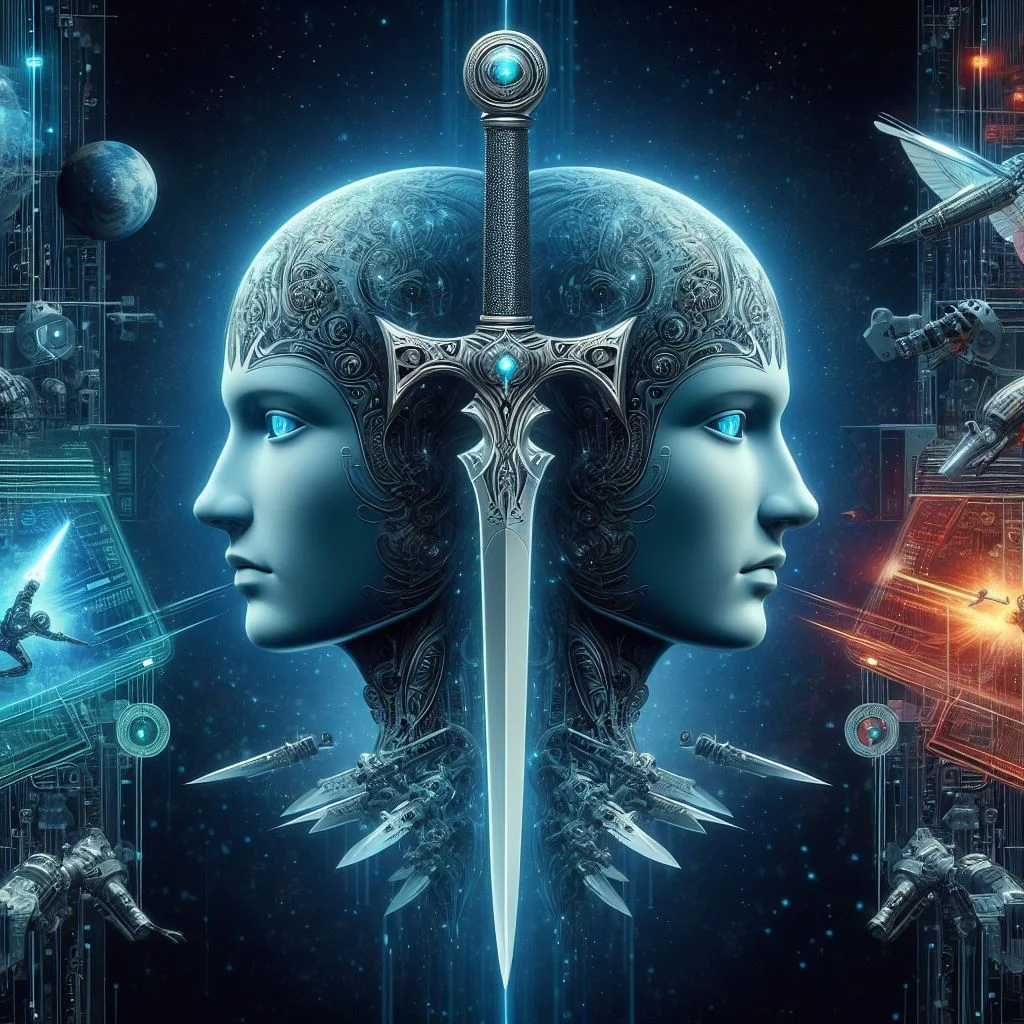Artificial Intelligence (AI) is rapidly transforming our world, automating tasks, driving innovation, and reshaping industries. From facial recognition software to self-driving cars, AI’s power is undeniable. However, this power comes with a responsibility – the responsibility to ensure AI is developed and deployed ethically.
This article delves into the ethical considerations of AI, exploring the potential pitfalls alongside the promise.

The Bias Problem: When Algorithms Perpetuate Injustice
AI algorithms learn from data, and therein lies the first ethical hurdle. If the data used to train an AI is biased, the resulting algorithms can perpetuate and amplify societal biases. For example, a facial recognition system trained on a dataset with predominantly white faces may struggle to accurately recognize people of color, leading to wrongful identification and potential discrimination.
Mitigating bias requires a multi-pronged approach. Tech companies need to ensure diverse and representative datasets for training AI. Additionally, developers must implement mechanisms to detect and correct for bias within algorithms.
The Black Box Conundrum: Transparency and Explainability
Many AI systems, particularly complex ones like deep learning models, operate as “black boxes.” Their decision-making processes are opaque, making it difficult to understand how they arrive at a particular conclusion. This lack of transparency poses a significant ethical dilemma.
For example, an AI-powered loan approval system might deny a loan to someone without providing a clear explanation. This lack of transparency can erode trust and raise concerns about fair and equal treatment. Developers need to focus on building explainable AI systems that can provide clear insights into their decision-making processes.
Job Displacement: The Rise of the Machines and the Fall of Humans
One of the biggest fears surrounding AI is large-scale job displacement. As automation progresses, increasingly sophisticated AI systems can potentially replace human workers in various tasks. While AI may automate mundane and repetitive tasks, freeing humans for more creative and strategic roles, it’s crucial to address the potential social and economic impact of job displacement.
Governments, educational institutions, and tech companies need to collaborate in preparing the workforce for jobs of the future. This might involve reskilling and upskilling initiatives to equip individuals with the skills needed to thrive in the AI-powered economy.
Weapons of the Future: The Ethical Minefield of Autonomous Weapons
The development of autonomous weapons, also known as “killer robots,” presents a horrifying ethical quandary. These weapons systems can select and engage targets without human intervention, raising concerns about accountability and the potential for unintended consequences.
A crucial step towards mitigating this threat is international cooperation and the establishment of ethical guidelines for the development and deployment of autonomous weapons systems.
The Moral Dilemma: Artificial Consciousness and the Rights of Machines
As AI continues to evolve, questions about artificial consciousness (AC) begin to emerge. If AI systems someday achieve sentience or consciousness, do they deserve certain rights? Should we treat them differently from traditional machines?
These are philosophical questions that necessitate ongoing debate across ethical, legal, and scientific communities. While true artificial consciousness remains a hypothetical scenario, it’s important to consider the ethical implications well in advance.
Beyond the Risks: Fostering a Human-Centric Future with AI
Despite the ethical concerns, AI holds immense potential for positive change. AI systems can aid scientific research in areas like healthcare and climate change. AI-powered tools can personalize education and provide real-time language translation, breaking down communication barriers.
To ensure the ethical development and deployment of AI, several key principles need to be emphasized:
- Human Control: Machines should always be under human oversight. AI systems should be designed to augment human decision-making, not replace it.
- Transparency and Explainability: AI algorithms should be transparent and explainable, allowing us to understand their logic and decision-making processes.
- Accountability: There needs to be a mechanism for holding developers and users of AI systems accountable for their actions and outcomes.
- Privacy and Security: User data privacy needs to be protected when deploying AI technologies. Robust security measures are essential to prevent unauthorized access and manipulation of AI systems.
- Global Collaboration: The ethical development and use of AI require international cooperation amongst governments, tech giants, and academic institutions.
Conclusion: A Collective Responsibility
The ethical considerations of AI are complex and multifaceted. However, they’re not insurmountable challenges. By fostering an open and honest dialogue, prioritizing human-centric values, and implementing responsible practices, we can ensure AI continues to evolve for human benefit. The future of AI depends on our collective ability to address these ethical considerations.
Here are some additional thoughts to consider for your conclusion:
- Individual Action: While large-scale policy changes are crucial, individuals also play a role in shaping the ethical landscape of AI. By being mindful of the AI tools we use and demanding transparency from developers, we can contribute to a more responsible AI ecosystem.
- The Power of Optimism: The rise of AI doesn’t have to be a dystopian nightmare. By focusing on the potential for positive change and prioritizing human well-being, we can harness the power of AI to build a better future for all.
- A Continuous Conversation: The ethical considerations of AI are not static. As AI continues to evolve, so too must our ethical frameworks. Keeping an open mind and engaging in ongoing dialogue will be essential for navigating the complexities of an AI-powered world.
The future of AI is bright, but it’s a future we must shape intentionally. By acknowledging the ethical considerations and implementing responsible practices, we can ensure AI becomes a powerful tool for progress and positive change, allowing us to address some of humanity’s greatest challenges and create a brighter future for all.
